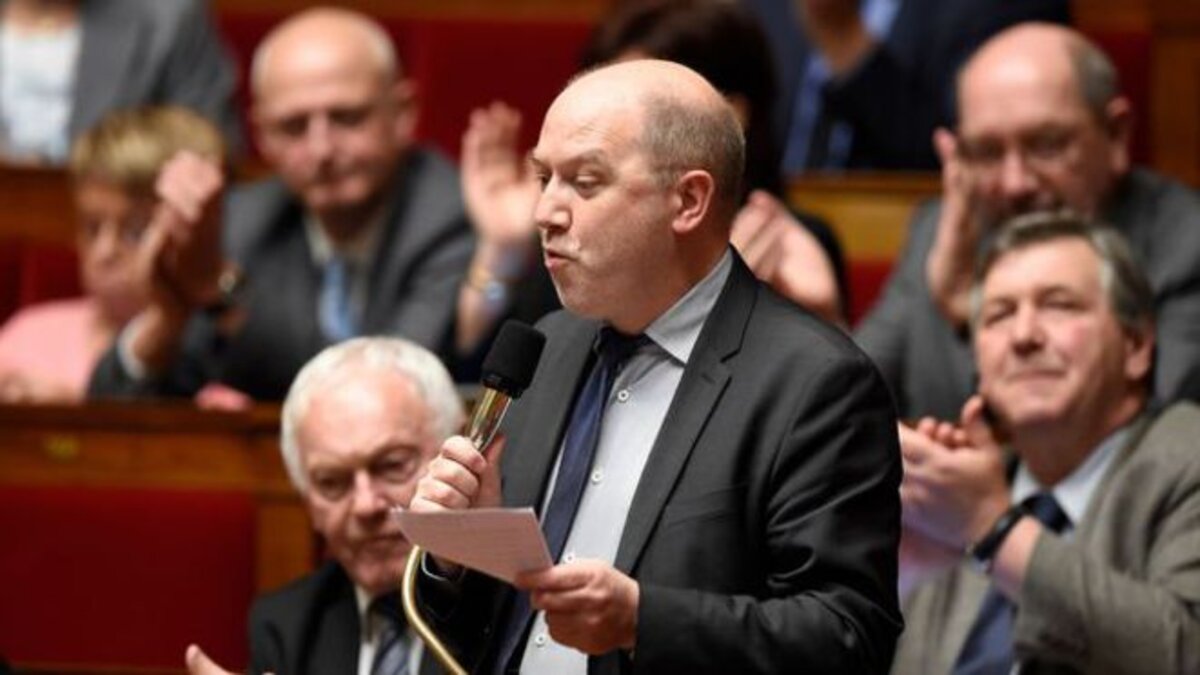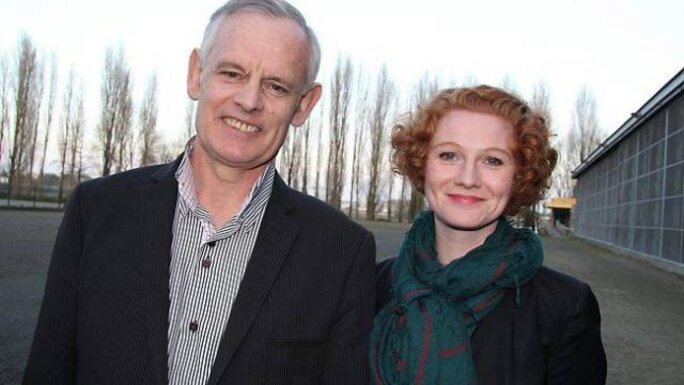An investigation led over several months by Mediapart and France Inter radio has heard the accounts of eight women who denounce sexual harassment against them by Denis Baupin, a Member of Parliament (MP) for Paris, appointed deputy speaker of the lower house, the National Assembly, in 2012, and a once leading official with the Green EELV party from which he resigned in April citing policy disagreements.
The detailed and serious allegations against him include four past and present members of the EELV party, including its current spokeswomen Sandrine Rousseau, who spoke openly and in their own names, while others chose to remain anonymous.
Following the revelations by Mediapart and France Inter on Monday morning, Baupin resigned his post of deputy speaker of the National Assembly on the demand of the speaker, Claude Bartelone.

Enlargement : Illustration 1

EELV party spokeswoman Sandrine Rousseau, 44, told Mediapart of how Baupin groped her breasts and tried to force a kiss upon her during a meeting of the party in October 2011 in preparation for the 2012 presidential and legislative election campaigns. The meeting took place in the east Paris suburb of Montreuil, when Baupin was deputy mayor of Paris (a post he held from 2001-2012) and an influential EELV party official.
Rousseau, an economist with Lille university, and then vice-president of the Nord-Pas de Calais regional council in north east France, had just recently become a member of the party’s leadership committee. “Nobody knew me, I was the little new girl,” she said. At one point during the meeting she left the tribune to go to the toilettes. “In the corridor that runs alongside the hall came Denis Baupin,” she recalled. “He pinned me against the wall, holding me by my bosom, and sought to kiss me. I threw him off violently.”
“During the moment, I was so shocked I didn’t say very much,” she added. Rousseau returned to the stage. “I felt a deep malaise,” she said. “I immediately thought that it was absolutely abnormal that I suffered that.” She spoke of the incident to one of her male party colleagues sitting alongside her. “He said to me ‘Ah, he’s begun again’. That was his phrase.”
Contacted on several occasions since May 2nd by both Mediapart and France Inter, Denis Baupin refused to answer our requests for an interview, referring us to his lawyers. They also refused to answer our questions and brandished the threat of legal proceedings. Previously, in an unusual move on April 8th, the lawyers, apparently already aware of our investigation that was underway, sent a letter to Mediapart warning us against publishing our information.
On April 18th, Baupin announced his resignation from the EELV party. Following the publication in French of Mediapart’s investigation on Monday, a lawyer for Baupin issued a statement saying his client “fundamentally contests the idea [sic] of sexual harassment and all the more so of sexual aggression, which are totally foreign to him”. The lawyer said Baupin “envisages” launching legal action for defamation.
Another of the women who complained of sexual harassment by Baupin is Member of Parliament (MP) Isabelle Attard, who represents a constituency in the Calvados region of Normandy. Elected in June 2012 as an EELV party representative, she left the party in December 2013 over her disagreement on policy matters. Now an independent MP, she remains a member of the Green parliamentary group. She said it was during her 18 months as an EELV MP that she received dozens of lewd mobile phone text messages from Baupin.
“It was virtually daily harassment with provocative, salacious, text messages,” Attard, 46, recalled. “There were moments when there were no more, it came in salvos, and it was more when we were at the [National] Assembly, between Tuesday and Thursday. It was, for example, ‘I like it when you cross your legs like that’. It was even crudely, during meetings or working lunches, to propose to me to be my lover. At first it’s said with a joking tone. Then it soon becomes very tiring, trying.” She said she had heard other female colleagues had suffered similar experiences. “I knew that we were several MPs to have received the same text messages,” she said.
“For me it was sufficiently trying that I envisaged no tête à tête working meeting with Denis Baupin,” she added. Baupain was recognised as a specialist in energy issues, and in particular in nuclear matters. “Finally, my work suffered. I needed to be able to work with him, I have the Flamanville [nuclear plant] EPR beside my [constituency] place. But I gave up. I applied self-censorship.”
On only one occasion she asked for a meeting with Baupin, but in the company of her male parliamentary assistant, Frédric Toutain, who confirmed the event to Mediapart. He said Attard had shown him examples of the text messages from Baupin. “I remember the one about the crossed legs, about things that centred around ‘You resist me, I like that’,” said Toutain.
Isabelle Attard took no official action nor, until now, revealed the events in public.
'Women victims of violence feel guilty, fragile and isolated'

Enlargement : Illustration 4

Elen Debost is an EELV councillor and deputy mayor in charge of youth policies at the town hall of Le Mans, in north-west France. She said she also received sexually explicit text messages from Baupin, beginning in 2011 when the 2012 legislative election campaign was in preparation. Baupin contacted her for support within the party for his own candidature.
Debost said she then became subject to “several months of sexual incitation” in his messages, despite telling Baupin she was not interested in his advances and that she had someone else in her life. “In all, I received about a hundred messages of the type ‘I am on the train and I’d like to sodomise you wearing a cuissarde [thigh-high boots],’ I adore situations of domination. You must be a wonderful dominatrix,’, ‘I’d like to see your arse’,” Debost recalled. At one point the messages, she said, suddenly stopped, and that she and Baupin have since avoided contact.
Annie Lahmer is an EELV member of the Greater Paris (Île-de-France) regional council, and has been a Green party activist for some 20 years. At one point, she was an employee of the party. She had been invited, during a European parliament election campaign in the late 1990s, by Baupin to a traditional Bastille Day party organised by the leadership of the Greens which she attended with two girlfriends. “I felt that he wasn’t very happy,” she recalled.
A short while later, Lahmer said, she found herself alone with Baupin at the Green party’s headquarters. “When we’re on an electoral campaign we often finish late,” she said. “One evening, I was in the office of [then-party leader] Jean-Luc Bennahmias, who wasn’t there. I was alone with Denis. He began to chase after me around the desk. It was a completely wacky scene. I stopped on one side of the desk and I said to him ‘Listen Denis, you just have to jump over it’. He replied ‘But I’m capable of doing so’. At that point I said to him ‘This thing of yours is nonsense’ and I left. The next morning I arrived and took up my work again. Denis was there. He didn’t say hallo. I told him, ‘Listen Denis, so as of the moment that someone doesn’t want to sleep with you, you don’t say hallo anymore’. He pointed his index finger at me, saying ‘You will never have a post within the party’. Things stopped there.” Several years later, Lahmer left the party for a job at Paris City Hall.
The accounts of harassment by Baupin cover the period from 1998 to 2014 and were never made public until now. The women who have come forward and who agreed to be identified said they did so after seeing Baupin join in a campaign against violence suffered by women which was promoted on March 8th during International Women’s Day. That was when Baupin featured in a photo with other French MPs wearing lipstick which he posted on Twitter with the slogan "Put on the red".
“When I discovered it, it provoked real nausea in me,” said Elen Debost. “I said to myself we cannot continue to remain silent, because by staying silent we are complicit in it continuing. That’s not the politics that I want.” EELV spokeswoman Sandrine Rousseau added: “There was a trigger that was that photo of March 8th, where I saw not someone who defended women’s rights but someone who had tried to kiss a woman by force.”

Enlargement : Illustration 7

Other women also complained of harassment from Baupin, but asked to remain anonymous. They include one who in 2012, when Baupin was elected MP for a constituency in Paris, worked with an association in the capital that was allied to the Greens. She said over a period of six months she received text messages “heavy and at unlikely hours, of the type ‘It would give me pleasure to have a drink with you’, ‘you are really pretty’, ‘what are you doing tonight?”.
She said she finally sent him a text message threatening to tell his partner, which brought an end to the messages. “It is the typical case of a [female] collaborator who is chatted up by a fat heavy,” she said. “It is the daily lot of all the young women who work in politics. It’s the same everywhere.”
An assistant at the National Assembly recalled how, in the autumn of 2014, she received text messages that were “a bit too amicable”, but refused to divulge what they were, adding that they were not sexual harassment. However, she contacted two leading EELV party MPs who co-presided the parliamentary group, Barbara Pompili and François de Rugy. “When I raised the events with the co-presidents, they sorted it out in tête à tête with him[Baupin] and he immediately stopped. Following that, I have continued to work with him without any embarrassment.”
The two co-presidents confirmed the events. “As there is a hierarchical relationship between employees and MPs there was no question of covering up,” said François de Rugy. Afterwards, there were never any problems with the collaborator nor with others.”
Another woman who spoke on condition of anonymity is a former member of the association Jeudi-Noir which campaigns against the housing crisis caused by high rents and unoccupied buildings which could be used as housing. “I was at the time in a fragile situation,” she said. “I had just arrived in Paris, I had no friends and problems with lodgings.” It was 2010 and she met Baupin, then deputy mayor of Paris, for the first time at a press conference. She said that in reaction to her situation he said to her that she needed “lots of support” and that “one must be very mobilized at your side”, “one must be kind”. She recalled how she felt ill at ease with the situation and swiftly left. Later, she came across Baupin again at an evening event held at the EELV headquarters. “He said to me ‘We’ve lots of things to do the two of us’,” she said. “I left straight away.”
At the beginning of March 2012, Jeudi Noir began a squat of a building in central Paris, and several of the associations leaders were arrested and held for questioning by police. The witness, who still worked Jeudi Noir, called Baupin to ask for the phone number of his partner, now his wife, Emannuelle Cosse, an EELV official who had long been a supporter of the Jeudi Noir campaign, and who she hoped could help with the situation. The conversation, according to the witness, was tense. “It ended with ‘Me too I asked you for things and you never did anything’,” she said, citing Baupin.
None of the women who agreed to speak to Mediapart lodged any formal complaint against Baupin. For many of them, the events they recount occurred more than three years ago, and so are covered by a prescription law that prevents prosecution of crimes of sexual harassment or aggression which were not officially reported within 36 months. Often, the women kept their experiences to their close circle, and in some cases they say they did not suffer from what is too often a banal event in French society and notably in the world of politics. But for most of the witnesses interviewed here, the memory of what happened remains painful, sometimes shameful, with the double-sided guilt of being both a victim and of having kept silent.
“I think I was caught up in what all women say when they are victims of violence, that they feel guilty, they feel fragile, they feel isolated,” said Sandrine Rousseau. “That’s exactly everything I felt at the time. And I am a militant feminist, who stakes a claim on high to those values. I am not proud of not having lodged a formal complaint,” she added.
“When it happens, one doesn’t boast about it because you are a bit shameful,” said Elen Debost. “One has the impression that it’s our fault because one has lovers, one has a free life.”
There is also the fear of losing employment, of featuring on a blacklist of those who denounce sexual harassment and who will never again find a job in politics. “At the time, I was vulnerable,” said Annie Lahmer. “I needed my job, I was a single mother with two little girls. My life was complicated.” She said nothing of what she recounted here, of Baupin chasing her around the office desk and his threat the next day that she would find no post in the party. “I didn’t talk straight away, because I had to keep my job, because Denis was in the party leadership.”
MP Isabelle Attard added: “The problem is you believe pretty quickly that you are the only one concerned and so you don’t talk. Whereas when you lance the boil you realise that there is one, then another, then another and so on. And that adds up to a lot of people, and that it has lasted a long time. And that everyone keeps quiet out of respect for his wife [editor’s note: current housing minister Emmanuelle Coste and EELV national secretary from 2013-2016]. Because he’s a party cadre, because it doesn’t sit nicely amongst the scenery. Well in fact, a party that is capable of cleaning itself up internally is a courageous party, and EELV can once again become a courageous party.”
EELV party national secretary David Cormand, welcomed the revelations. “The thing that allows this type of events is silence,” he said. “This silence has lasted too long. Today it stops, and that’s a good thing.”
-------------------------
- This is an abridged version of the investigation originally published in French by Mediapart's Lénaïg Bredoux and Cyril Graziani of France Inter and which is available here.
English version by Graham Tearse


